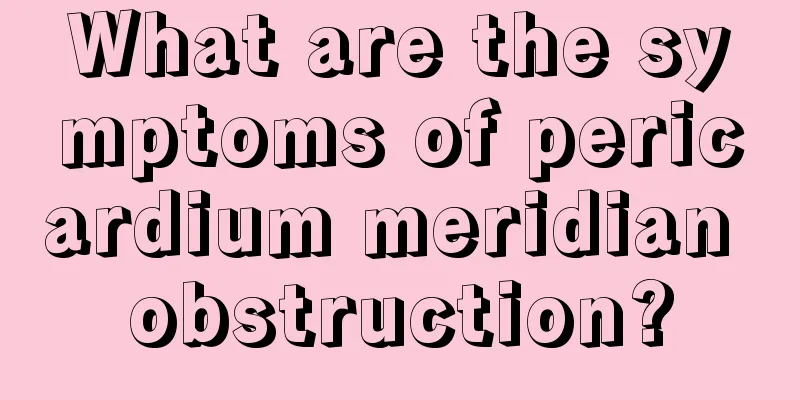Can pituitary tumors be cured? How should pituitary tumors be treated?

|
Once a tumor is detected, the first question that comes to the patient's mind is "Can it be cured?" This is understandable. The harmfulness of tumors cannot be underestimated. If it is a malignant tumor, it may cause death. Pituitary tumors are not uncommon in clinical practice and have brought great pain to patients. So, can pituitary tumors be cured? Pituitary tumors can be cured. Clinically, pituitary tumors are mainly benign tumors that occur on the pituitary gland. Treatments mainly include surgery, medication, and radiotherapy. Because no single method can achieve a complete cure, each treatment method has its own advantages and disadvantages. The treatment plan should be determined based on the size of the patient's pituitary tumor, hormone secretion, and other factors. 1. Drug treatment For pituitary prolactin-secreting tumors, more than 90% of patients can use dopamine agonists to control PRL levels and reduce the size of the tumor. Only those prolactinoma patients who are allergic or intolerant to such drugs, who have acute symptoms caused by tumor compression and need emergency surgery to relieve pressure, or who are unwilling to undergo surgical treatment, choose surgical treatment. During the treatment with bromocriptine, the dose of bromocriptine should be gradually increased until the serum PRL level drops to normal levels, and then the dose should be adjusted for long-term maintenance treatment. Regardless of the treatment, patients with growth hormone-secreting tumors should achieve the following treatment goals: eliminate the tumor, reduce tumor recurrence, achieve GH standards, relieve clinical symptoms, preserve pituitary function as much as possible, improve the patient's quality of life, and prolong the patient's life. 2. Radiotherapy Since most pituitary tumors are adenomas, they have poor sensitivity to radiotherapy. After radiotherapy, 70% to 80% of patients experience decreased pituitary function, which reduces their quality of life. Therefore, radiotherapy is only suitable for patients with surgical remnants, those who cannot tolerate surgery, those who are insensitive to drugs, or those who have comorbidities and cannot undergo surgery or drug treatment. 3. Surgical treatment At present, the treatment of pituitary tumors is still mainly surgery, supplemented by drug therapy and radiotherapy. Pituitary tumors are located in the sellar region, surrounded by important nerve structures such as the optic nerve, internal carotid artery, and hypothalamus, so surgery still has certain risks. The current surgical methods include transsphenoidal, craniotomy, and gamma knife. Pituitary tumor surgery can affect the posterior pituitary gland, which can easily lead to insufficient secretion of posterior pituitary hormone after surgery, which can lead to increased urine volume and even diabetes insipidus. Other complications include hypothalamic reaction, optic nerve damage, cerebrospinal fluid leakage, etc. Recurrence is still possible, so regular follow-up is required. |
<<: What are the symptoms of pituitary tumors? What should I do if I have a pituitary tumor?
Recommend
Are geckos poisonous? The efficacy and function of geckos
Geckos are relatively common animals in our daily...
Soaking your feet in white vinegar to treat Achilles tendinitis
Achilles tendonitis is a sterile inflammation, an...
Add salt and vinegar to wash face
People's skin will secrete oil, so after a da...
Early cure rate of liver cancer and gastric cancer
Liver cancer and stomach cancer are both very dif...
Family members should always pay attention to the symptoms of kidney cancer patients
Kidney cancer is a very serious disease with a hi...
What are the early symptoms of lung cancer? Early lung cancer will have these symptoms
Lung cancer is a relatively common malignant tumo...
What's wrong with the spots on the right lung?
Physical health is an issue that everyone is very...
Mole is red, swollen and painful
Moles are a phenomenon that everyone is familiar ...
How do you get pancreatic cancer and what causes it
The main causes and related factors of pancreatic...
How to treat oral mucosal diseases
Oral mucosal disease is closely related to the co...
What are the causes of high fasting blood sugar?
Generally, blood sugar measurement needs to be do...
Back pain, leg cramps
Modern people are flowers in a greenhouse, especi...
How to clean blood stains on clothes
Sometimes you accidentally scratch your hands and...
Basic knowledge of human meridians
The main function of the human body's meridia...
Is it good to supplement calcium in summer?
When supplementing calcium, you should also pay a...









